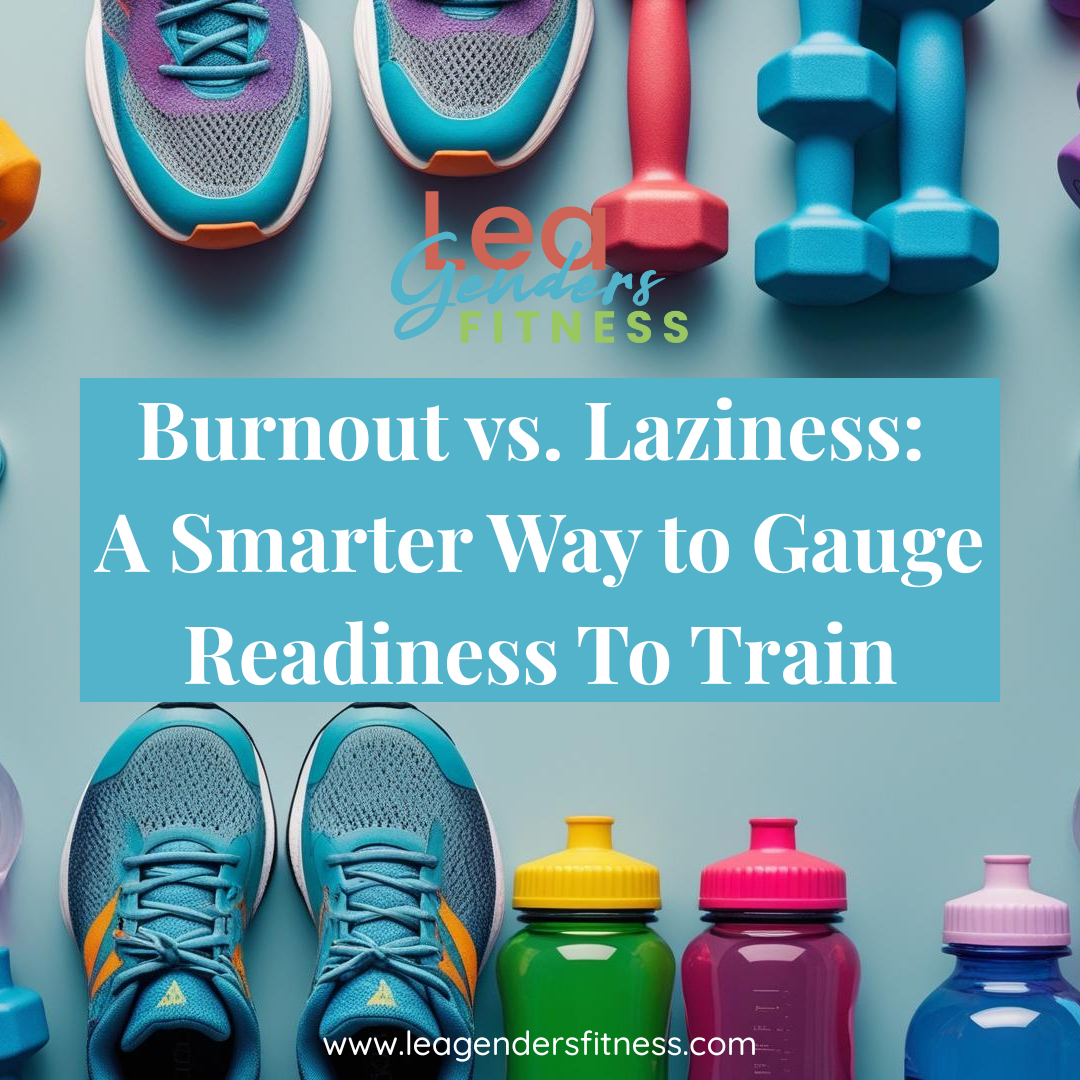Sometimes a client tells me they're feeling lazy. They've been consistent, showing up for workouts and making progress, but then suddenly, things feel harder. They can't keep up with the plan. They feel tired, disconnected, or off track. That's when the self-blame usually kicks in.
They assume they're slacking. That they've lost focus or discipline. But when we look more closely, there's almost always something else going on. Most of the time, it has nothing to do with motivation. It often comes down to stress or other lifestyle factors that haven't been accounted for. And when they pile up, even a solid training plan can feel like too much.
We don't train in a vacuum. Everything from your sleep to your meals to your workload plays a role in how well you move, recover, and progress. If your system is already stretched, your workouts will reflect that.
Be careful with that self-talk. When we label ourselves as lazy, we start to act in alignment with that label, even if our actions and circumstances don’t support it. Most of the time, what we’re calling laziness is something else entirely.
It might be fatigue. It might be overwhelm, stress, poor sleep or nutrition, or not knowing where to start. It might be a nervous system doing its best to keep up.
When we stop at “lazy,” we miss the opportunity to ask better questions: What’s getting in the way? What do I need right now? What kind of support or recovery would help me move forward?
The words we use to describe ourselves shape what we believe is possible. So choose them with care.
Stress Is Part of the Process
Stress is often misunderstood as something to avoid. But stress is how the body adapts. When you challenge your muscles with a tough session or focus on building endurance, your body responds and grows. That response depends on your ability to recover.
Outside the gym, you deal with stress in plenty of forms. A full workday, managing a household, dealing with personal responsibilities, navigating change—these all take energy. They place a demand on your system. If you don't have space to recover, that stress builds up and spills over into how you feel in your body.
Sometimes my Oura ring tells me I had a stressful day when I didn’t feel any psychological stress. Just because you don’t feel stressed, doesn’t mean your body isn’t showing signs of stress.
Everything Counts
Your body doesn't sort stress by category. Whether it's emotional, physical, cognitive, or environmental, your system processes it all the same. Sleep loss, skipped meals, high-pressure deadlines, a lack of movement, or excessive movement without recovery all draw from the same reservoir.
Over time, that tank runs low. When it does, workouts that once felt manageable can start to feel much harder. This shift is often a sign that your system is under pressure and needs more support, not more intensity.
A Tool to Check In with Yourself
When you're unsure whether to push through or scale back, it helps to have a way to check in with how your body is doing. That's why I created the Gauge Your Readiness tool. It's a short self-check that helps you reflect on your physical and mental state before training.
The quiz walks you through six key areas that influence your ability to recover, perform, and feel your best. Each one gives valuable information:
Soreness
Feeling a little sore can be a regular part of training, especially after trying something new. However, consistent or deep soreness may indicate that your recovery requires more attention. This is your chance to notice if your body is asking for a lighter session or more time between lifts.
Energy
Low energy can come from a variety of reasons, including poor sleep, stress, under-fueling, or simply a long week. When energy feels low, it's worth taking a closer look before deciding how to train that day.
Sleep
Sleep supports every part of your recovery process. Without enough of it, your body struggles to bounce back from training. It affects how you feel and how your body adapts and gets stronger.
Stress
Stress from life, work, or relationships draws from the same pool of resources as your training. When stress feels overwhelming, it often makes sense to adjust your training approach. This might mean a lower-intensity session, more movement for recovery, or just allowing space to breathe.
Mood
Mood shifts can reveal a lot. Feeling flat, irritable, or disconnected often points to a system that's under strain. Paying attention here helps guide your next steps more thoughtfully.
Nutrition
Food plays a huge role in performance. If you're under-eating, skipping meals, or missing key nutrients like protein, your body has a harder time performing and recovering. This check-in helps you notice if your food choices have been supporting or working against your goals.
Taken together, these factors give a clear picture of how your body is functioning on any given day. When you understand what's happening, it becomes easier to make choices that support your progress.
Make the Most of What You Have
This approach provides a way to stay connected to your body's needs in real-time. Some days, that means showing up with full energy. On other days, it means adjusting your plan to support recovery. The better you understand your own patterns, the easier it becomes to stay consistent without burning out.
A low readiness score doesn't require skipping movement altogether. It's a cue to adjust. You might swap a heavy lift for mobility work. You might take a walk instead of a long run. You might move for the sake of circulation, not intensity. These small shifts help you maintain the habit while providing your system with what it needs.
Build Awareness That Lasts
Consistency grows from self-awareness. When you understand what's affecting your performance, you can take action early instead of reacting later. You stay on track through busy weeks, life changes, and unexpected challenges because you've developed a flexible and thoughtful approach.
The Gauge Your Readiness tool supports that approach. It provides a clearer understanding of how to train, recover, and manage your energy based on real signals from your body, rather than guesswork. Use it each morning to check in with yourself, see how you score, and make a training decision that supports your body, your mind, and your life as a whole.
Taking two minutes to check in today could be the reason you're still training, still progressing, and still feeling strong months from now.
Did you try the readiness to train tool? I’d love to hear about it!
Questions? I’d love to help.
Lea
Lea Genders is a board-certified health coach, personal trainer, and workplace wellness consultant based in Fort Worth, TX. She offers corporate wellness programs for employee health and productivity, as well as in-person and virtual training / coaching for individuals worldwide. Her blog shares expert guidance on strength training, running, and sustainable nutrition @fortworth_trainer












Most of us are stuck in habits and thought patterns that we didn’t even realize we were practicing. Whether it’s negative self-talk on loop, the trap of thinking every workout has to be a high-intensity suffer-fest, or being so obsessed with the scale that we miss the small meaningful wins, these mindsets can sabotage our progress. In this blog, we look at how to identify these traps, give ourselves some grace, and start choosing a new way to think about health and consistency.